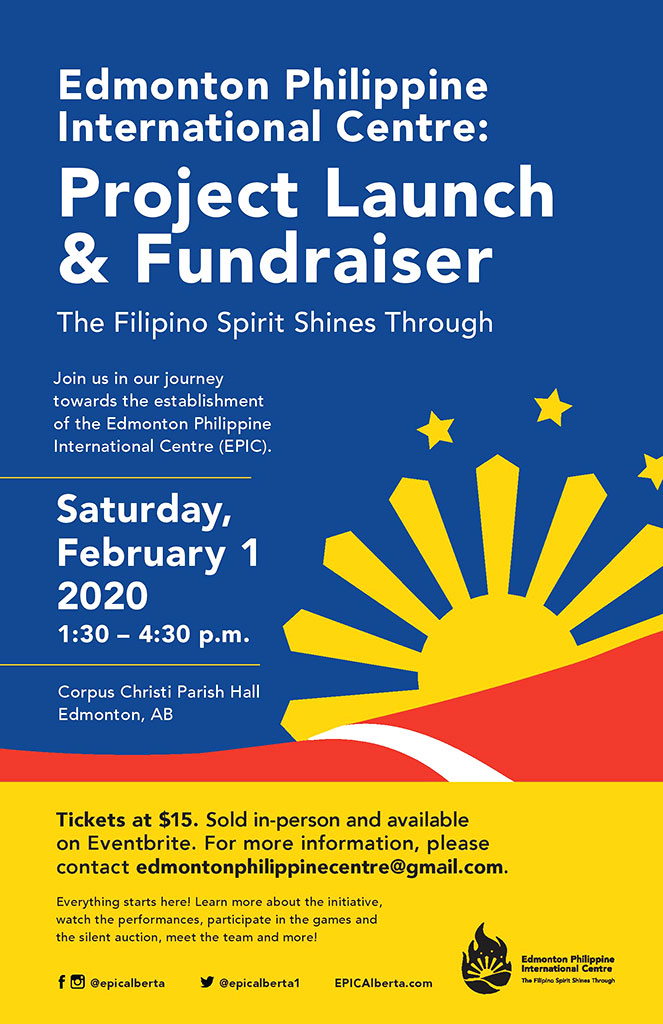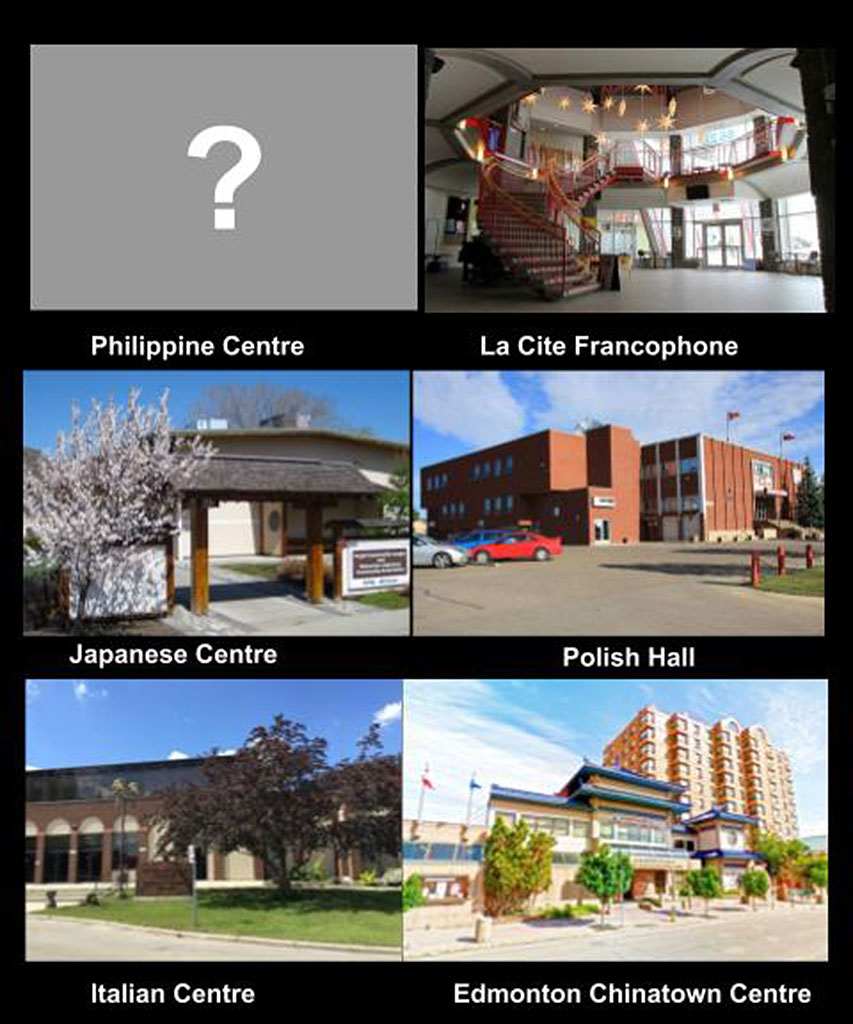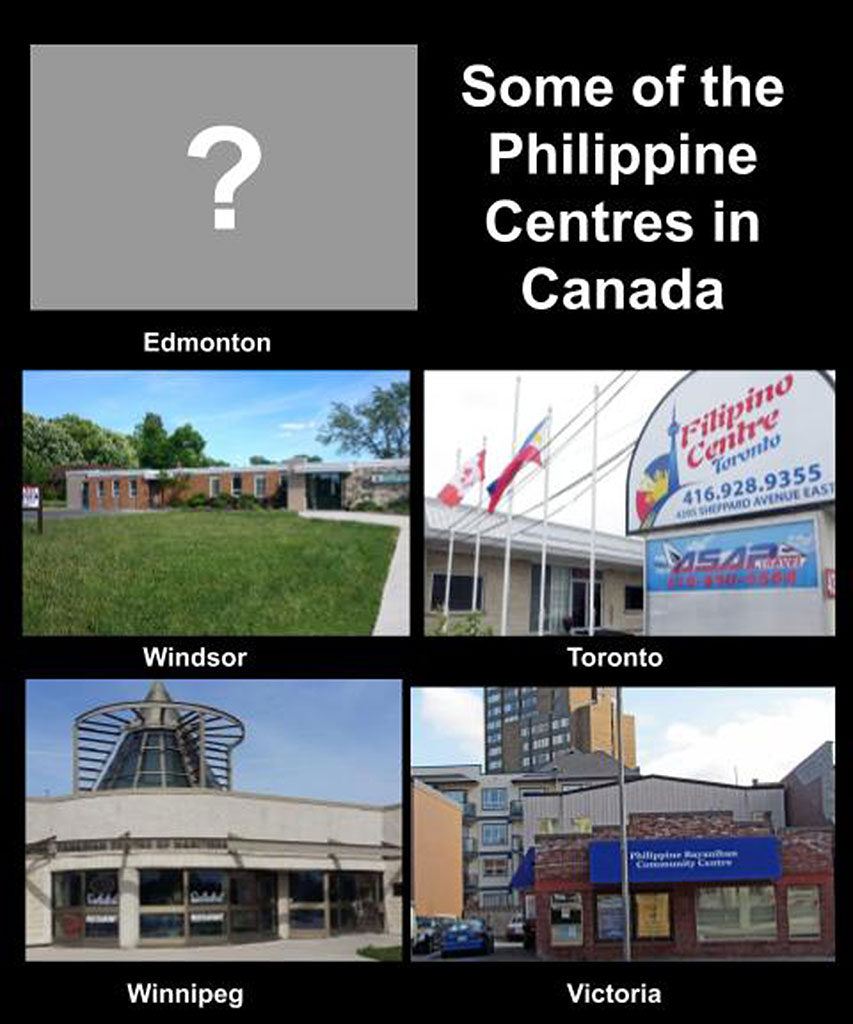In a multicultural society, it is inevitable to encounter a number of cultural
community centres around the city. At the top of one’s mind would be: the Polish Canadian Cultural Centre; Sejong Multicultural Centre; Edmonton Korean CommunityCentre; Ukrainian Cultural Centre; La Cite Francophone; Edmonton Chinatown MultiCultural Centre; Portuguese Cultural Centre; Italian Cultural Centre;
Slovenian Canadian Cultural Centre; Hellenic-Canadian Community of Edmonton & Region; German-Canadian Cultural Centre; Dutch Canadian Centre; and Edmonton Japanese Community Association, to name a few. The irony of this is that on some occasions, the reason for my being in these venues, was due to a Filipino community event.
Cultural infrastructures are an integral component of Canadian communities. These centres promote cultural values among the members of its community. They are a reflection of an established community where cultural services are increasingly part of municipal services. Arts and culture are some of the attributes that contribute to the highest quality of life of a community.
With the influx of Filipinos in Alberta, which has the second largest Filipino population in Canada at approximately 175,000, and with a migration history to Canada beginning in the 1930s, it is ideal, and rather imperative, that we Filipinos have a sustained venue, that will serve as a gathering place – a recreational, educational and cultural facility. There is nothing wrong with using another culture’s space, but it’s much more gratifying to have one that reflects your values, and way of life.
Some people may think: What does it mean for me?… I have no personal need for this… or this is only relevant to those who are involved in arts and culture work. Research on the impact of cultural community spaces has shown: that 95% of respondents learned something new, and 88% increased their confidence and pride in culture and traditions by participating in programs; for 85% participation increased their desire to learn, while 83% explored ideas, values and dreams, and 79% made friends; 77% reported a positive impact on their creativity; 65% developed skills; and 64% reported a positive impact on their health and well-being. There is substantial and diverse body of evidence that a wide range of cultural activities positively add value to regeneration initiatives – economic, social and environmental.
The Philippine Centre is envisioned to be the architectural definition of our community identity. Yet, it is not just about infrastructure but it is also about the people, our culture, creative engagement, and social interaction. The planning will include multiple perspectives: disciplines of expression – e.g. visual, performing, literary, media arts, heritage, etc.; functions – e.g. recreation, instruction, training, production, exhibition, preservation; levels of artistic activity – e.g. recreational arts, amateur arts, emerging and professional/not-for-profit arts, for-profit creative industries, etc.; and community goals. For a community whose people are geographically separated by 7,100 islands, should we not bond ourselves in our communal experiences of migration, values, and way of life in our adopted country?
In my article on March 2019 on “The Quest for a Philippine Centre in Edmonton”, I posed the challenge on what would it take for us to work together towards this goal. And now, I am elated to report that Filipino community organizations and volunteers are working together towards the establishment of the Edmonton Philippine International Centre (EPIC), which will have its launch and fundraiser on February 1, 2020, Saturday, 1:30-4:30 PM at the Corpus Christi Church Hall at 2707 34 Street, Edmonton. The event aims to disseminate information on the initiative, and show what Filipinos have been doing in, and contributing to, the city of Edmonton. There will be performances, tables featuring businesses and services, door prizes, a silent auction and food. It is an opportunity to once again convene, be proud of our personal history, share our culture and participate in this legacy project.
Work towards establishing a centre is long-term, requiring dedication, focus, determination and commitment with time, energy and resources. The current group of organizers and volunteers recognize the importance of accountability, trust and transparency and are exerting efforts to uphold these. However, an endeavour of this magnitude will only be made possible by sustained commitment, time, input and vision of MANY supporters – advocates, artists, business leaders, volunteers and community members. I appeal to everyone to lend their support, in whatever capacity, to the various upcoming projects supporting the Edmonton Philippine International Centre initiative. And let us uphold our tagline, The Filipino Spirit Shines Through!

To comment on this article, go to https://www.philippineartscouncil.com/blog.




